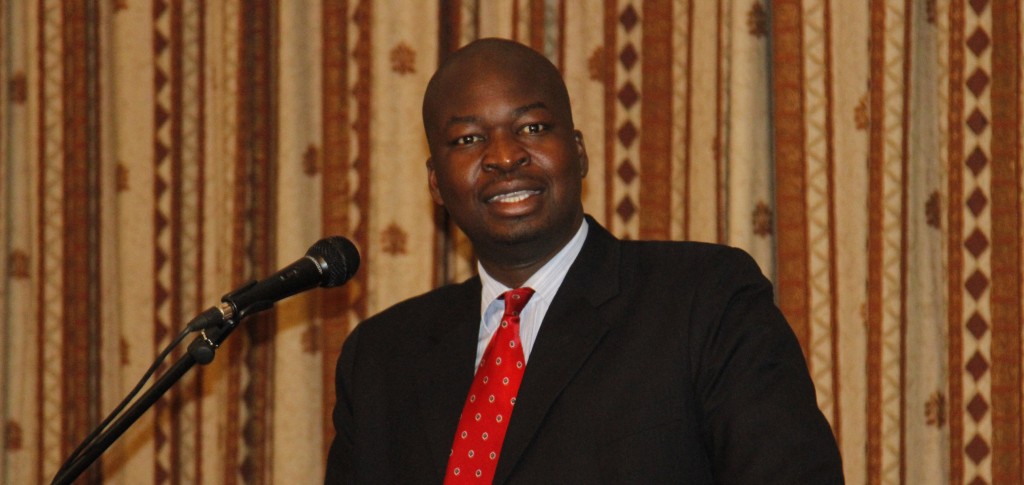ZIMBABWE's economy has never had significant Foreign Direct Investment inflows even during both the "successful" years and the colonial era, industry captains said.
As such there has been a negative correlation between gross domestic product growth and FDI.Barclays managing director Mr George Guvamatanga said Zimbabwe has made significant progress over the last five years in creating a favourable economic environment to attract FDI and the Government seems to be more engaged and willing to meet potential investors than ever before.
The former Bankers Association of Zimbabwe president was speaking at a breakfast seminar with business leaders in Harare yesterday.
Zimbabwe last had significant FDI in 1998 following huge investment by Zimplats in Ngezi.
Presently, Zimbabwe is attracting less than one percent of FDI's to Africa which topped $65 billion in 2012 despite the country possessing vast natural resources.
Global FDI reached $1,3 trillion in 2012 with Africa receiving five percent of that. Asia received 13 percent, said Mr Ritesh Anand, chief executive and founder of Invictus Capital.
Mr Anand said Zimbabwe needs an economic task force to advise the Government on policies that help attract capital. Presenting a paper on the key to success in attracting FDI inflows to Zimbabwe, Mr Anand said issues relating to labour costs and laws, regulatory bottlenecks, illegal sanctions, and corruption required "serious" attention.
Mr Guvamatanga said the illegal sanctions imposed on the country by the West continue to play a significant role in deterring potential investors especially the European Union and US investors. Hence the removal of embargo was critical for the country to move forward.
Mr Anand said the Government's economic blueprint, the Zimbabwe Agenda for Sustainable Socio-Economic Transformation also required fine tuning and urgent financing.
"The question now is on how we develop this policy document, Zim-Asset into real strategy," said Mr Anand.
He said Zimbabwe's "Look-East" policy has had limited success in attracting significant long-term investment, adding that a broader policy to attract investments from all regions was essential for the long-term development of the country.
Some of the issues he cited as deterring FDI inflows include the gap between perception and reality in Zimbabwe, the size of the country's market and the economic environment which include policies and regulations relating to doing business in the country, lack of transparency, consistency and accountability. He also noted the cost of capital was also hampering business growth.
"If the inflation rate is around one percent and yet interest rates are around 20 percent, this makes business very expensive," said Mr Anand.
Business leaders at the meeting expressed concern at high interest rates being charged by local banks.
Dairiboard Holdings Ltd chief executive officer Mr Antony Mandiwanza said: "Zimbabwe has moved from a hyper-inflationary mentality and we should calibrate our cost structures to the present day reality. We want to encourage investment savings. Interest rates around 20 percent are not acceptable in this current economy hence a rate around 12 percent would be good for the economy to move forward."
He said the issue of attracting FDIs should be scaled up to bilateral levels if Zimbabwe was to attract significant inflows.
"Zimbabwe needs to seriously start interrogating how other countries are handling their economies," said Mr Mandiwanza.
"In negotiations for investment deals, it should be scaled up from company to company basis to national levels because no investor would want to go to a country deemed unfriendly to his or her country of origin.
Industrialist and Allied Holdings chief executive Dr Joseph Kanyekanye said bank rates were "killing the economy."
"Bank rates are killing the economy. They are getting loans from the National Social Security Authority at low rates and also access deposits at next to nothing and yet charge business more than 20 percent," he said.
- The Herald
 Concern over Masvingo black market
Concern over Masvingo black market  Kenya declares three days of mourning for Mugabe
Kenya declares three days of mourning for Mugabe  UK's Boris Johnson quits over Brexit stretegy
UK's Boris Johnson quits over Brexit stretegy  SecZim licences VFEX
SecZim licences VFEX  Zimbabwe abandons debt relief initiative
Zimbabwe abandons debt relief initiative  European Investment Bank warms up to Zimbabwe
European Investment Bank warms up to Zimbabwe  Young Investment Professional (YIP) Graduate Programme 2019
Young Investment Professional (YIP) Graduate Programme 2019 











 Young Investment Professional (YIP) Graduate Programme 2019
Young Investment Professional (YIP) Graduate Programme 2019
Editor's Pick